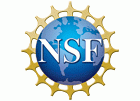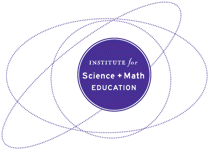How to integrate the argumentation from evidence practice into engineering design projects

Why It Matters To You
- Teachers should support students as they learn to make engineering claims that include evidence and reasoning throughout the design process.
- District staff & PD Providers should support teachers as they develop engineering design challenges that allow for a variety of rich evidence and reasoning related to science content.
- School leaders should support teacher collaborations to intentionally incorporate robust, argument-driven engineering design projects into instruction.
What is the Issue?
As teachers focus instruction on the science and engineering practices (SEPs), students need support to use argumentation in the context of engineering design investigations. Argumentation is sometimes exclusively considered a scientific practice, rather than also being fundamental to the engineering design process. Engineers use argumentation to weigh the merits of possible designs and to evaluate their success. Students should learn how to support engineering claims with specific evidence throughout the design process.
Authors:
BY KIMBERLY WEAVER & GINA TESORIERO | DECEMBER 2019
Reflection Questions
- How might arguing from evidence elevate trial-and-error or tinkering into more genuine engineering design?
- How can you plan science exploration and engineering design challenges so they inform each other?
- Are students critically evaluating the ideas of others to compare alternatives in the design process, or are they selecting ideas based on peer status?
Things to Consider
- Argumentation is key to engineering design. The NRC Framework makes clear that all 8 SEPs are the work of both scientists and engineers. During engineering problem-solving, reasoning and argumentation are critical practices for developing the best possible solution. As engineers engage in design, they collaborate with their peers to understand the problem and to design the most promising solution through thoughtful analysis of multiple iterations.
- Science and engineering are interconnected, not separate domains of work. Through engagement in scientific testing and explanation of phenomena, students make claims and gather evidence. This process is complementary to, and synergistic with, engineering design.
- As with science, specific data gathered through observation and experimentation can be used to support claims throughout the engineering process. However, there are many kinds of engineering specific evidence that can support claims. For example:.
- The problem context can support claims about the appropriateness of solutions, the desirability of solutions or features, and the creation of criteria and constraints.
- Science phenomena and explanations support claims about design features, material selection, and appropriateness of criteria and testing conditions. Science ideas can also be used as evidence to explain testing results or propose improvements.
- Criteria and constraints are some of the most important evidence students can use to support claims. All prototypes and testing results can be compared to criteria and constraints to support claims about appropriateness of the solution.
- Engineering documentation (sketches, measurements, materials inventory, budget, photo- or video-documentation, etc.) and feedback students receive can be used to support claims about fidelity to the original design plan, evolution and improvement over time, compliance with constraints, and more.
Attending to Equity
Consider providing the following accommodations:
- Model argumentation at different stages of the process, while providing sentence stems and suggestions for the types of evidence available to support all learners as they formulate and refine their claims.
- Ensure there are protocols in place that offer all students an opportunity to voice their thoughts during group work.
- Allow students to express their understanding in a variety of ways (e.g., taking photographs of prototypes or tests to support claims or allowing students to verbally express their claims in the language or register that is most expressive for them).
- Create heterogeneous groups, which can highlight the benefits of having diverse perspectives on a team.
Recommended Actions You Can Take
- Use the Argumentation in Engineering chart to plan instruction throughout the design process. It includes sentence starters, highlights types of evidence, and provides example arguments.
- Choose engineering challenges that require students’ scientific understanding to support criteria, design choices, and arguments.
- As you plan, consider what scientific ideas, observations, and testing results students can gather in earlier lessons or units to use as evidence to support claims in later engineering design challenges.
ALSO SEE STEM TEACHING TOOLS
STEM Teaching Tools content copyright 2014-22 UW Institute for Science + Math Education. All rights reserved.
This site is primarily funded by the National Science Foundation (NSF) through Award #1920249 (previously through Awards #1238253 and #1854059). Opinions expressed are not those of any funding agency.
Work is licensed under a Creative Commons Attribution-ShareAlike 4.0 Unported License. Others may adapt with attribution. Funded by the National Science Foundation (NSF). Opinions expressed are not those of any funding agency.


 Email Feedback
Email Feedback


